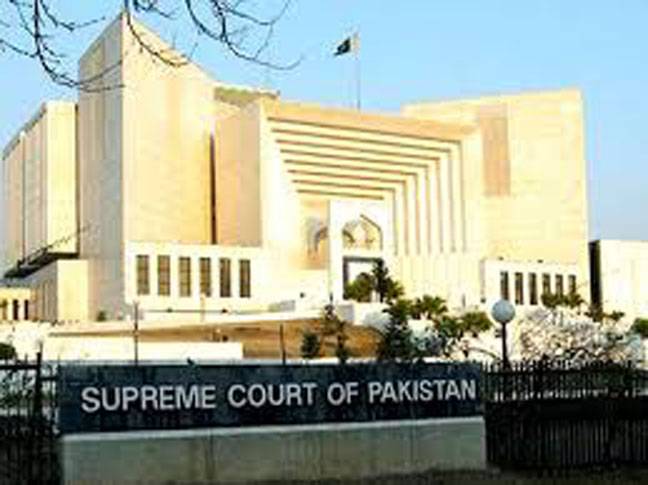LAHORE - The country’s top court Tuesday denied interim relief to Awami Muslim League (AML) chief Sheikh Rasheed Ahmad, who sought conduction of election today in NA-60.
The Election Commission of Pakistan had postponed election in this constituency after the disqualification of Pakistan Muslim League-Nawaz (PML-N) candidate Hanif Abbasi in years-old ephedrine case.
Sheikh Rasheed, who is also a candidate for NA-60, moved the Lahore High Court – which on Monday upheld the ECP’s decision.
The AML chief then challenged the LHC verdict in the Supreme Court, seeking court order for holding of election in constituency as an interim relief.
A three-member bench headed by Chief Justice of Pakistan Mian Saqib Nisar heard his plea on Tuesday. Justice Umar Ata Bandial and Justice Ijazul Ashan were the other members of the bench.
“Practically no possibility of election (in NA-60), therefore, no interim relief for election today,” the Chief Justice of Pakistan remarked while hearing the arguments of the counsels of Sheikh Rasheed and his rival candidates.
Pakistan Falah Party candidate Syed Rashid Gardezi for NA-60 was the only candidate who personally appeared before the bench and opposed Sheikh’s plea through his counsels Malik Ghulam Mustafa Kandwal and Sajjad Akbar Abbasi.
Sardar Abdur Razzaq, the counsel of Sheikh Rasheed, argued that the elections should not be postponed. He said Abbasi’s conviction in ephedrine case was in accordance with the law.
He also argued that Maryam Nawaz and Safdar were convicted but the elections were not postponed in the constituencies where they were contestants.
At this, Justice Ijazul Ahsan observed that Maryam and Safdar had covering candidates but there was no covering candidate of Pakistan Muslim League-Nawaz in NA-60. Therefore, a significant number of electorate wanting to vote for a major party would be deprived of their right if the election is held here, he observed.
Rasheed’s counsel said it was the fault of the Pakistan Muslim League-Nawaz that failed to nominate anyone as covering candidate in NA-60.
The CJP remarked: “A major political party would be out of election. Should then they allow Abbasi to contest election?”
To stress the point that Abbasi’s conviction came at the eleventh hour, he asked the counsel, “Can you tell us when the sentence of Abbasi was announced?”
Justice Umar Ata Bandial also asked him about the day when the election symbols were finalised for the contesting candidates and when the high court’s decision was announced.
Abdur Razzaq advocate said they did not even object to the candidature of Abbasi. He said he was simply requesting that the election should not be postponed.
The appellant said they did not move any application in ephedrine case and the case had been pending for last six years. Abbasi himself came to the court for an early decision and finally his conviction was done in accordance with the law.
“Should they allow unopposed election?” the CJP asked.
“Don’t go for a walkover— go for a fight,” Justice Bandial remarked.
“He [Sheikh Rasheed] is contesting in some other constituency [too]. Let him contest election there and see [if he reaches the assembly by winning from there],” the Chief Justice of Pakistan said to the lawyer.
The CJP questioned the appellant’s counsel that how the election was possible on July 25 (today). He replied that all the necessary election material had reached the constituency.
At this, the Chief Justice of Pakistan observed that they admit the appeal for regular hearing and issued notices to Attorney General of Pakistan and the Election Commission. The next date of hearing is in office.






